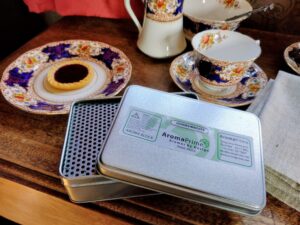‘Missed opportunity’ in EU trade mark case ruling
Intellectual property specialists Clarke Willmott have welcomed confirmation by the Court of Justice of the European Union (CJEU) in the Sky v Skykick case that applying for a trade mark without intending to use it may constitute bad faith.
But Thomas Kirby, a solicitor in Clarke Willmott LLP’s Intellectual Property team, says the decision that a trade mark applied for partly in bad faith will only be declared partially invalid, means that the above finding is of limited effect.
“If the deterrent against filing broadly is the potential to lose goods/services which were applied for as ‘blocking measures’ only, we will probably not see changes to filing strategies which do this.
“There are other ways in which broad monopolies may be challenged, but this decision clearly favours trade mark proprietors by setting the bar high for seeking a declaration of invalidity on the basis of lack of intention to use.“The CJEU’s decision will be welcomed by trade mark proprietors, but will continue to be argued at the application stage and there remain mechanisms in place to restrain over-broad monopolies.”
Cloud management firm Skykick had also argued – in a claim viewed by many as one of the most important EU trade mark cases of the last few years – that Sky’s registrations covering “computer software” should be declared invalid on the basis that this term is insufficiently clear and precise.
However, the CJEU held that lack of clarity or precision in the list of goods/services was not a ground on which an EU or national trade mark could be declared invalid.
“It is disappointing that the court decided not to make any changes to the ability to obtain protection for broad terms such as ‘computer software’. Software is incorporated in almost every product we interact with and performs an endless variety of functions.
“This decision represents a missed opportunity to free up the market to new entrants by restricting the scope of the monopoly a party could obtain over computer software and other similarly broad terms.
“It will, however, no doubt be welcomed by the established players that already own broad monopolies as it enables them to continue enforcing those rights”.
Clarke Willmott’s Intellectual Property team works with global brands including Canon, ghd, Fred Perry and UGG, and for start-ups with clients including app and software developers, software consultancy businesses, franchisors and franchisees.
Clarke Willmott LLP is a national law firm with seven offices across the country in Birmingham, Bristol, Cardiff, London, Manchester, Southampton and Taunton.





